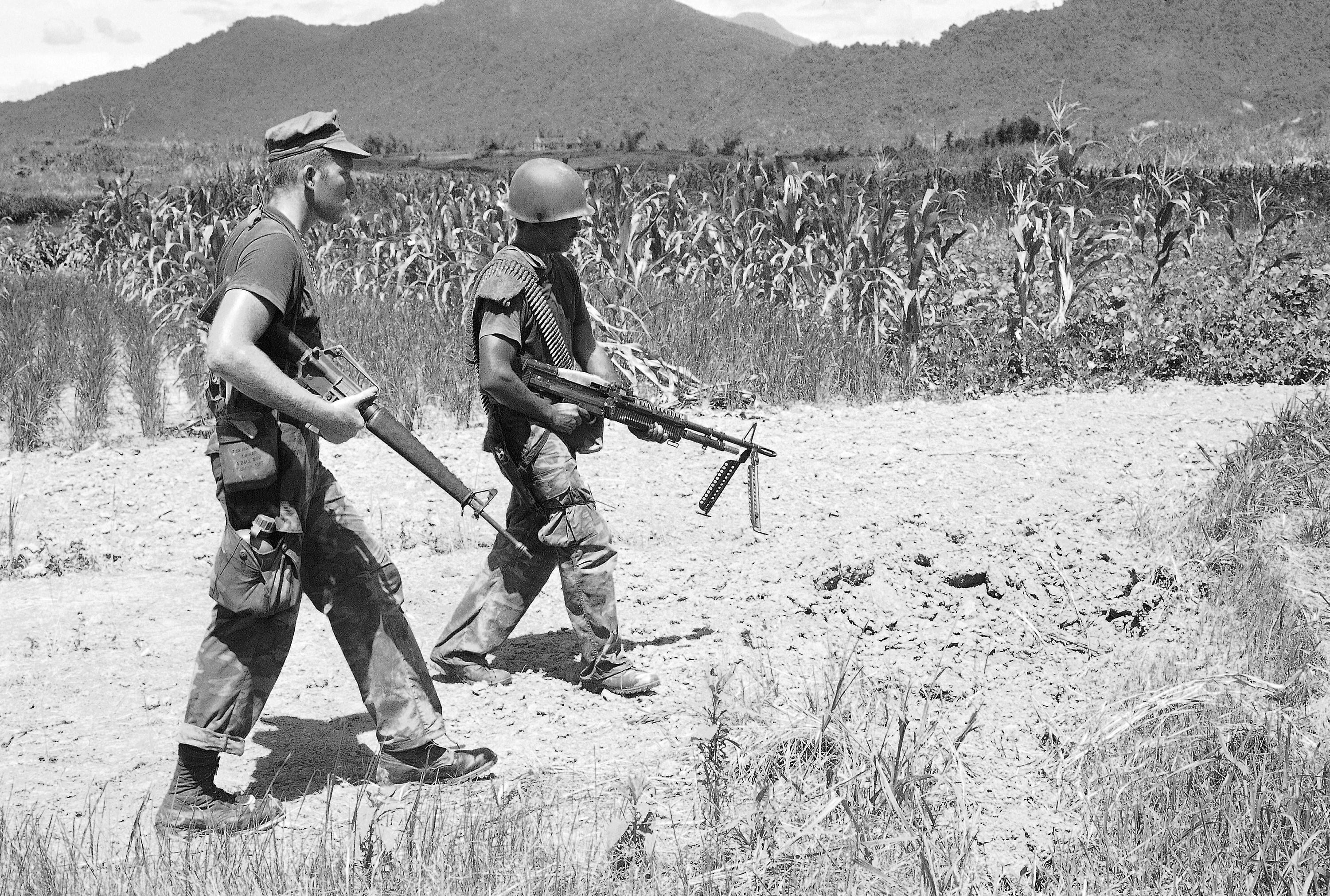Congress in recent years has expanded disability benefits for veterans exposed to toxic chemicals during fighting in Vietnam, but a pair of lawmakers is pushing now to make sure U.S. troops who faced the same poisons while deployed to nearby countries receive similar help.
On Thursday, Pennsylvania Reps. Matt Cartwright (D) and Brian Fitzpatrick (R) introduced new legislation to expand the presumption of exposure to Agent Orange for disability benefits to veterans who served in Thailand, Laos, and Cambodia during the conflict.
“Many of those who have been exposed are living with cancers, heart disease or Parkinson’s disease,” Cartwright said in a statement. “They deserve relief for the pain and hardship this has caused for them and their families.”
RELATED

Staff could not say exactly how many veterans may be affected by the change. More than 50,000 U.S. troops were deployed to Thailand alone at the height of operations there, but it is unknown how many of those individuals later deployed to Vietnam and are already eligible for presumptive benefits status.
But veterans advocates for years have pushed for Congress to close the gap in Agent Orange benefits for individuals exposed to the chemicals in the 1960s and 1970s but never set foot on Vietnamese soil.
Presumptive benefits status is significant for veterans filing for disability benefits because it avoids a host of paperwork and documentation usually required for the payouts.
In most cases, veterans seeking the benefits must prove (typically through medical exams and service records) that their injuries and illnesses are directly connected to their time in the military.
However, in conflicts like Vietnam, where the chemical defoliant Agent Orange was used across the country with little clear documentation of when U.S. troops were exposed, federal officials have made exceptions to those standards of proof.
Individuals who served in the country and later suffered from a list of illnesses connected to chemical exposure — things like prostate cancer, lung cancer, and Parkinson’s disease — can qualify for benefits simply by showing they served on the ground during the war there, or in the waters nearby.
Even though Agent Orange was widely used in nearby countries, veterans who spent time in Thailand, Laos, and Cambodia are not granted that presumptive status. That means they must prove direct exposure to the chemical during their deployments, proof that advocates say is nearly impossible due to incomplete, aging military records.
Fitzpatrick said the new legislation will “ensure our Vietnam War veterans who served in Thailand, Laos and Cambodia receive the care they deserve now.”
RELATED

The bill would include veterans who served in the following locations:
— at Army Bases or Royal Thai Air Force Bases between Jan. 9, 1962, and May 7, 1975;
— at the Pranburi Military Reservation in Thailand between Jan. 1, 1964, and April 30, 1964;
— anywhere in Laos between Dec. 1, 1965, and Sept. 30 30, 1969;
— in Kompon Cham Province in Cambodia in April 1969.
Veterans would be granted presumptive benefits status regardless of the military occupation. Similar legislative efforts to improve the benefits to countries beyond Vietnam have stalled in Congress in recent years, despite expanded benefits for troops who served in the country.
Congressional staff did not have an estimate for what the benefits expansion may cost. Last year, lawmakers added three new illnesses to the list of presumptives for Agent Orange exposure in Vietnam, a move that is expected to help about 34,000 veterans and cost about $8 billion over the next 10 years.
Leo covers Congress, Veterans Affairs and the White House for Military Times. He has covered Washington, D.C. since 2004, focusing on military personnel and veterans policies. His work has earned numerous honors, including a 2009 Polk award, a 2010 National Headliner Award, the IAVA Leadership in Journalism award and the VFW News Media award.





